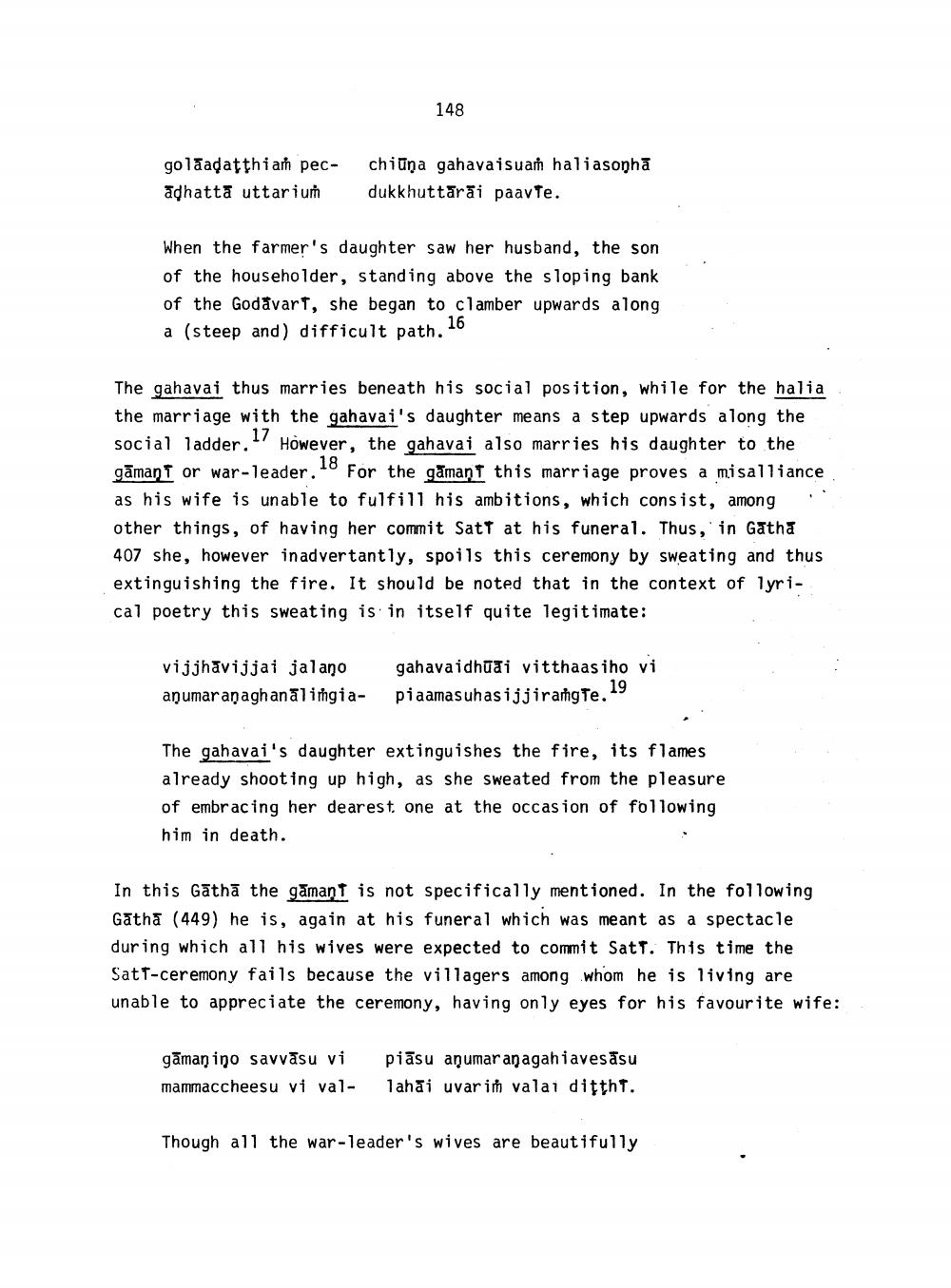________________
148
golāadatthian pec- adhatta uttarium
chiūņa gahavaisua haliasonha dukkhuttārāi paavte.
When the farmer's daughter saw her husband, the son of the householder, standing above the sloping bank of the Godavart, she began to clamber upwards along a (steep and) difficult path. 16
The gahavai thus marries beneath his social position, while for the halia the marriage with the gahavai's daughter means a step upwards along the social ladder." However, the gahavai also marries his daughter to the gāman I or war-leader. For the gamant this marriage proves a misalliance as his wife is unable to fulfill his ambitions, which consist, among other things, of having her commit Satt at his funeral. Thus, in Gatha 407 she, however inadvertantly, spoils this ceremony by sweating and thus extinguishing the fire. It should be noted that in the context of lyrical poetry this sweating is in itself quite legitimate:
vijjhavijjai jalano anumaranagh analingia-
gahavaidhui vitthaas iho vi piaamasuhasijjirang Te. 19
The gahavai's daughter extinguishes the fire, its flames already shooting up high, as she sweated from the pleasure of embracing her dearest one at the occasion of following him in death.
In this Gāthā the gamant is not specifically mentioned. In the following Gātha (449) he is, again at his funeral which was meant as a spectacle during which all his wives were expected to commit Satt. This time the SatT-ceremony fails because the villagers among whom he is living are unable to appreciate the ceremony, having only eyes for his favourite wife:
gāman ino savvāsu vi mammaccheesu vi val
piāsu anumar anagahiaves asu lahāi uvar in valai ditthT.
Though all the war-leader's wives are beautifully




